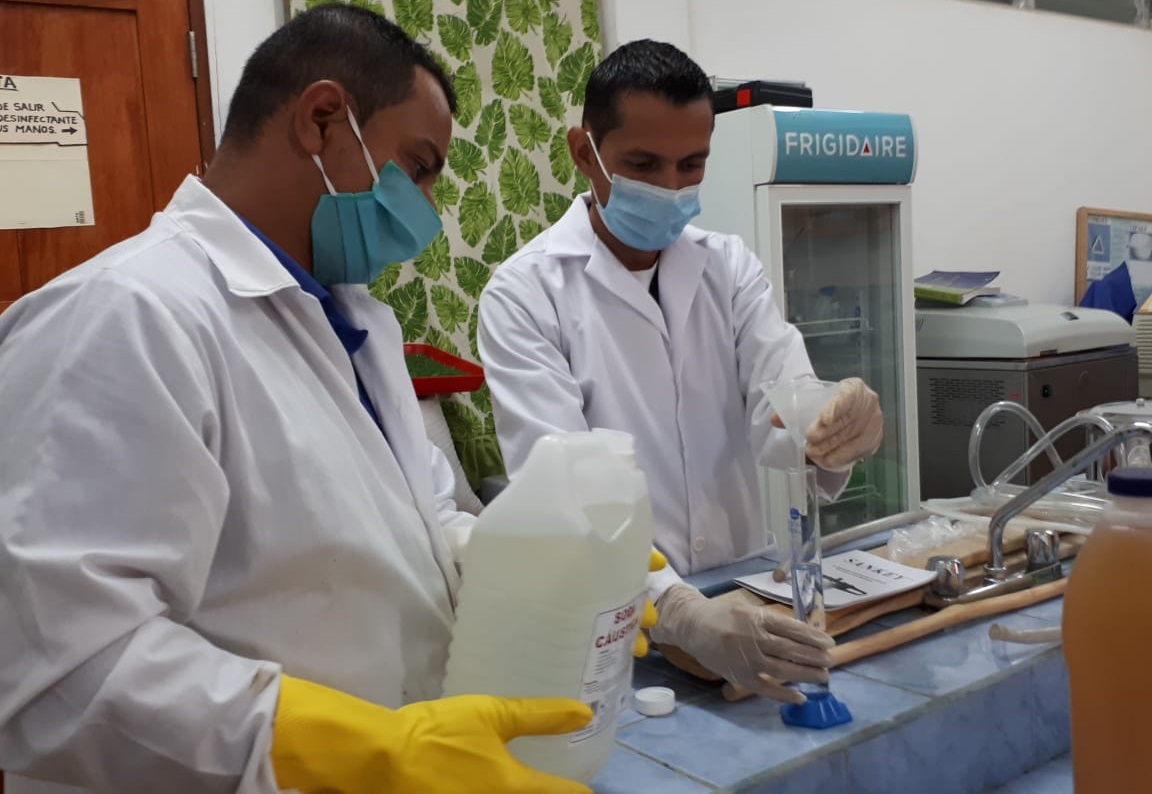
URACCAN's professional team, during chlorine production work.
URACCAN, consistent with its commitment to help reduce the risks affecting the health of its staff and students and by addressing the institutional protocol anti-COVID-19, mobilized its chemists and biologists to initiate a process of producing inputs including soap, chlorine, alcohol and distilled water, to protect the health of the entire university community.
The process was carried out at the Science Laboratory of the New Guinea site, where a group of experts worked, consisting of: Allan Ray, chemical engineer of the Bilwi compound; Elder Brizuela, chemical engineer at the New Guinea site; José Milciades Castro, biologist with mention in Chemistry, of the Waslala extension; and Oswaldo Hernández, PhD in Veterinary Medicine and general coordinator of the Natural Laboratories of URACCAN, who successfully managed to work on the serial manufacturing protocol of these products.
This scientific effort for health purposes was promoted and promoted by Rectory, which executes a security protocol adjusted to the multi-ethnic context of the Caribbean Coast. Hence the experts who materialize these strategies come from the different enclosures and extensions of this Intercultural Community University.
As part of its work schedule for the prevention of coronavirus and other viral diseases, production formulas for soap, sanitary chlorine, bleach chlorine, alcohol, sanitizing alcohol and distilled water were successfully tested, using sodium hypochlorite and an aggregate of sodium hodroxide as the basis. All of this will contribute to the disinfection process that URACCAN promotes in all its facilities for the safety of its community.
The rector of this house of intercultural higher education, Dr. Alta Hooker, guided the vice-chancellors to implement a series of hygienic measures, including the installation of sinks at the main entrances of each enclosure; therefore, this production will allow the supply of soaps and chlorine in all its enclosures and extensions.
- Log in to post comments
- 232 views
